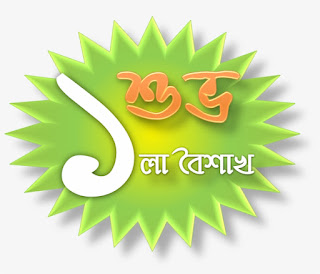"১লা বৈশাখ" The first day of the Bengali calendar
The first day of the Bengali calendar, known as "Pohela Boishakh" or "1st Boishakh," is a day of great significance and celebration in Bangladesh and West Bengal, India. It marks the start of the new year and is a time for new beginnings, hope, and renewal. This festival is celebrated with great enthusiasm and joy, and it brings people from all walks of life together.
The origins of Pohela Boishakh can be traced back to the Mughal era when Emperor Akbar introduced the Bengali calendar to streamline tax collection. Since then, the festival has become an integral part of Bengali culture and tradition, and it is celebrated with great fervor every year on April 14 or 15.
On this day, people wake up early in the morning, dress up in new clothes, and visit their local temples or shrines to seek blessings for the coming year. Traditional sweets, such as "pitha" and "roshogolla," are prepared and shared among friends and family. Streets are adorned with colorful decorations, and music and dance performances are organized in public spaces.
One of the main attractions of Pohela Boishakh is the "Pohela Boishakh Parade" or "Mongol Shobhajatra," which is a colorful procession that takes place in Dhaka, the capital city of Bangladesh. The parade features giant masks, floats, and traditional musical instruments, and it is a symbol of unity and solidarity among the people.
Pohela Boishakh is also a time for business and commerce. Many traders and shopkeepers start their new accounting year on this day, and they offer special discounts and promotions to attract customers. This practice dates back to the Mughal era when traders used to open new account books on the first day of the new year.
In recent years, Pohela Boishakh has become a global festival, and it is celebrated by Bengali communities around the world. It is a time for Bengalis to come together and celebrate their culture and heritage, irrespective of their geographical location.
Pohela Boishakh is a festival of great cultural and historical significance for Bengalis. It is a time for new beginnings, hope, and renewal, and it is celebrated with great enthusiasm and joy every year. This festival is a testament to the rich cultural heritage of Bengal, and it is a symbol of unity and solidarity among the people.









Comments